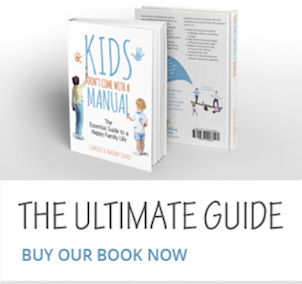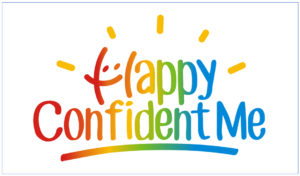One morning last week, my wife was away so I was taking care of the kids. They had become really good at following the morning routine that we had devised together so everything worked quite well. I usually just needed to go upstairs and confirm that they had brushed their teeth and brushed their hair as this was the bit that sometimes got forgotten. I was getting ready to go check on them before going down to breakfast when I heard screaming coming from upstairs.
It was the sound of my seven-year-old, Yasmine, and four-year-old, Yara, fighting. Then all of a sudden, I heard a big ‘slap’ and my youngest daughter burst into tears. It was clear by the sound that Yasmine had hit her younger sister, and this immediately generated a lot of strong emotions in me. Didn’t Yasmine learn that violence was unacceptable? I felt upset and angry that after all the conversations we had about this in our family meetings that Yasmine would still behave in such a way. My immediate instinct was to march upstairs and intervene. But I knew from experience (and all our research!) that it probably wasn’t a good idea to do this while I was still in the grip of such strong emotions, so I refrained and instead, I took a deep breath.
This allowed time for Yasmine to come running down the stairs. As she saw me, she looked quite sheepish, as she was clearly expecting to get a scolding. But I controlled my emotions and didn’t mention anything about what I had just heard, and instead just told her that she can go down to breakfast and I will be joining her in a couple of minutes.
I went upstairs to check on my youngest daughter who was still crying. Yara was sat on the floor and I went and sat down beside her. She showed me where Yasmine had hit her and then, between sobs, she started to explain what had happened. “Yasmine wanted to take my dresses, and when I said that she couldn’t have them, she hit me!” she exclaimed. I could feel strong emotions once again bubbling to the surface, so rather than immediately reacting, I took a few deep breaths and reminded myself that sibling rivalry and feelings of jealousy are totally normal and that it was important not to lose my temper. I knew that if I lost my temper, I could create resentment between my children by taking sides, instead of helping them resolve their conflicts more peacefully.
I went down to breakfast and Yasmine was sat at the table with a very unhappy expression on her face. She looked defensive and sulky, as if she was anticipating some very serious lecturing from me. But I simply sat with her at the table and calmly said without a hint of anger or reprimand in my voice, “You’re usually so kind and caring Yasmine, you must have been feeling really upset and frustrated to hit Yara the way you did.” Suddenly, her face completely changed – her eyes softened and the sulky expression disappeared. Then without any hesitation she jumped into my arms and started to cry. I held her close to me and she started to explain her version of what had happened: “My dresses were in Yara’s cupboard, I guess Mummy must have put them there because they were too small for me. But I wanted to keep them so that I could give them to my cousin!”
I simply listened and nodded, and then repeated what she had said back to her to show her that I understood. “So you were upset and frustrated that Yara was using your dresses without you being aware of it because you wanted to give the dresses to your cousin?” She seemed so relieved that I was actually listening to her, and in that moment I felt an overwhelming sense of bonding and connection with my daughter, and it was clear from the look on Yasmine’s face that she felt the same. I still wanted Yasmine to learn that these things cannot be resolved with aggression and was about to say something about this, but before I could give it much further thought, she jumped up and was writing a message for Yara on the eraser board in our kitchen: “Yara, I love you, you’re the best sister ever”, it read. Yara was listening to all of this without a word and I helped her read Yasmine’s message, and it wasn’t long before she wrote her own message in return, which simply read: “I love you!”. I felt so proud of my two daughters that morning for managing to get over their negative feelings, and proud of myself for choosing to respond in a more effective way.
And the best part of all this actually happened at the end of the week when my wife got back. We had our weekly Family Meeting and while we were going through ‘compliments and gratitude’, which are a important part of our meetings, Yasmine told me: “Dad, I want to thank you for shouting a lot less lately”. I was beaming!
Imagine how different the situation would have been if I’d followed my initial instinct to intervene and had tried to ‘fix’ the problem with anger, reprimands and lectures? Had I not refrained and chosen to use empathy instead, I would have most probably made the situation worse as they would’ve been each been defensive about what had happened and the focus would have been on who was right and who was wrong.
I would’ve been forced into the role of ‘referee’ and would probably have felt obliged to take sides. Taking sides would mean that I’d then have to decide who should be given a consequence for fighting, and this choice would lead to one of my kids resenting me because as far as they were concerned, they were both ‘right’ in their own minds! Or potentially I may have decided that they were both responsible and may have created even more resentment in both of them. I would’ve also missed out on connecting with Yasmine, and the chance to make her realise by herself that hitting is not the best way to treat people you love.
This example wouldn’t work in every situation, particularly if siblings are really hurting each other, and there are other effective tools that parents can use in case of crisis and to prevent sibling rivalry in the first place. But it shows that not intervening in a fight can often be the best way to avoid creating resentment between siblings and also shows how powerful giving empathy is, which is something that I would’ve found so difficult to give just a couple of years ago!
Even though we may think that we are doing the ‘right’ thing when we lecture or reprimand our children for what we perceive as ‘bad’ behaviour, we may actually be making the situation worse and missing out on a great opportunity to establish a stronger sense of trust and connection with our children. It is when we’ve established this connection that we can ‘teach them’ how to behave better.













































